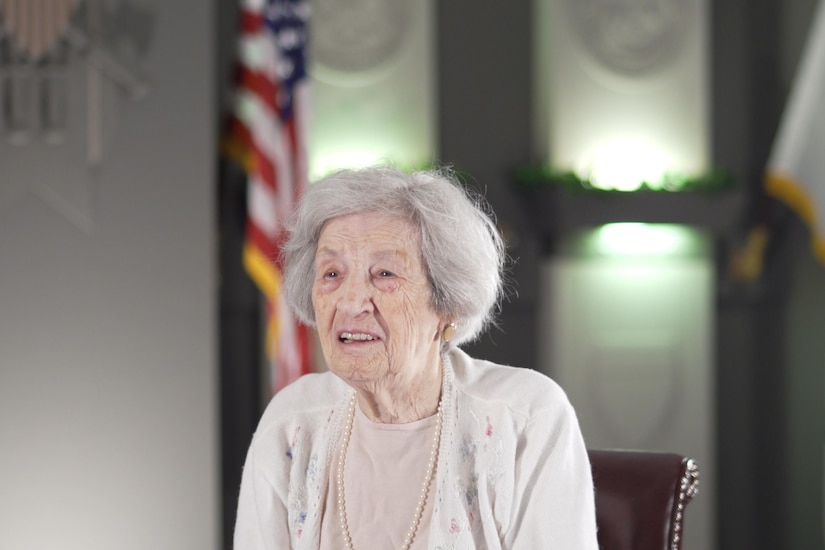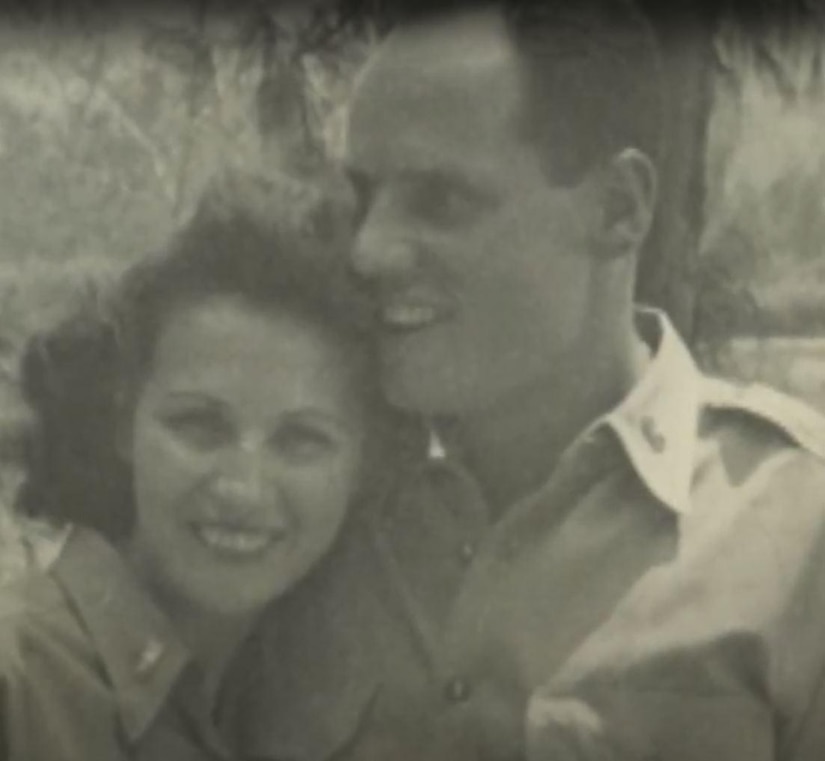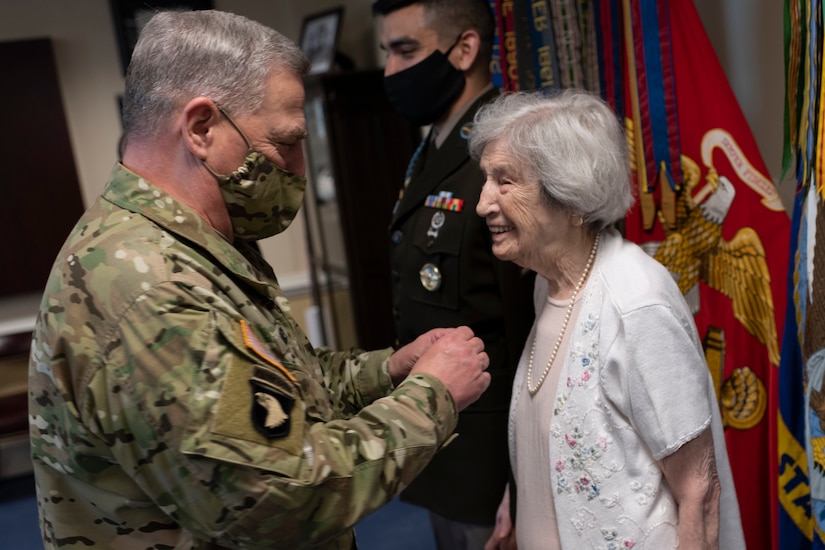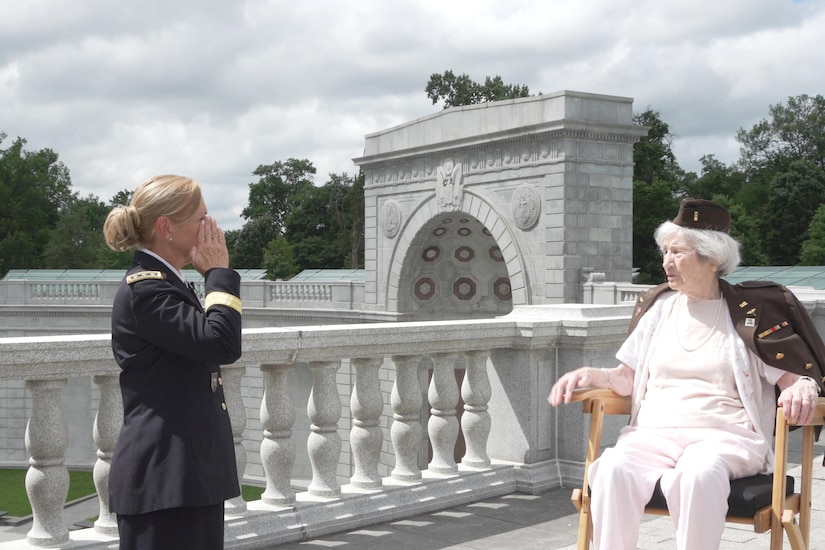Aug. 21, 2020 | , DOD News
World War II was raging in 1944. American troops were instrumental in the effort to take back France, including the beach landings in Normandy that caught the Germans off guard. American forces took possession of Rome, and a Soviet counterattack pushed Germany back into Poland.
In the Pacific, Japan had gained more Chinese territory, but the communists' presence limited Japan's success. The Allies fought back by taking Saipan and invading the Philippines.
Meanwhile, in Philadelphia, 24-year-old nurse Regina Benson and three of her nursing school classmates joined the Army Nurse Corps right after graduation to serve their country. They were assigned overseas and remained lifelong friends.

Benson's three brothers were also serving, so for her, joining the Army as a patriotic duty was not unusual.
"She was kind of fearless," her daughter, Phyllis Benson, said in a recent interview.
Benson, of McLean, Virginia, is now 100 years old. She visited the Pentagon recently and was interviewed about her Army Nurse Corps service in Japan, Hawaii and Okinawa, from September 1944 until April 1946.
While in Hawaii, 2nd Lt. Benson met her future husband, Army 1st Lt. William Benson, who was a supply officer and a company commander. He stayed in the Army Reserve, reaching the rank of lieutenant colonel. When Regina left the Army in 1946, she became a civilian surgical nurse, her daughter said.

Benson had some harrowing experiences during her wartime service in the Pacific.
"We were on a ship going across the Pacific, and we hit a bad storm," Benson said. "So, the captain decided we would go down with the ship, and of course, everybody got on their knees and prayed and promised God many things. Then all of a sudden, the ship calmed down, and we went through the eye of the storm and everybody went back to what they were doing."
After the Japanese announced their surrender on Aug. 15, 1945, and formally signed an agreement Sept. 2, American service members were welcomed into the homes of Japanese, Benson said. "We ate dinner with them, talked to them and stayed in some of the Japanese homes," she said, adding that the Americans shared their rations with the Japanese.

She remembers well, the day the Japanese surrendered. "I was delighted, but the Japanese [troops] in the hills didn't know that World War II was over, and they came down [from the hills] shooting at us," she said. She said she jumped for joy when the war was over so she could return home, get married and work as a civilian nurse.
Benson believes "the United States is the greatest country in the world because of its freedoms and because people can carry out their dreams." If she could speak to younger generations today, she said she would tell them "to love their country, and remember the price [service members] paid for your freedom. Remain true to your country. We can pursue our dreams and hopes."

Regina Benson worked 12-hour shifts in Army hospitals in the Pacific; on wards and in operating rooms. She said the most important thing she did during the war was "to give comfort to those troops who were dying."
According to Benson, the most rewarding part of her Army nursing career was to be able to tell the mother of a young service member that their son did not die alone, because she was there with them.








No comments:
Post a Comment